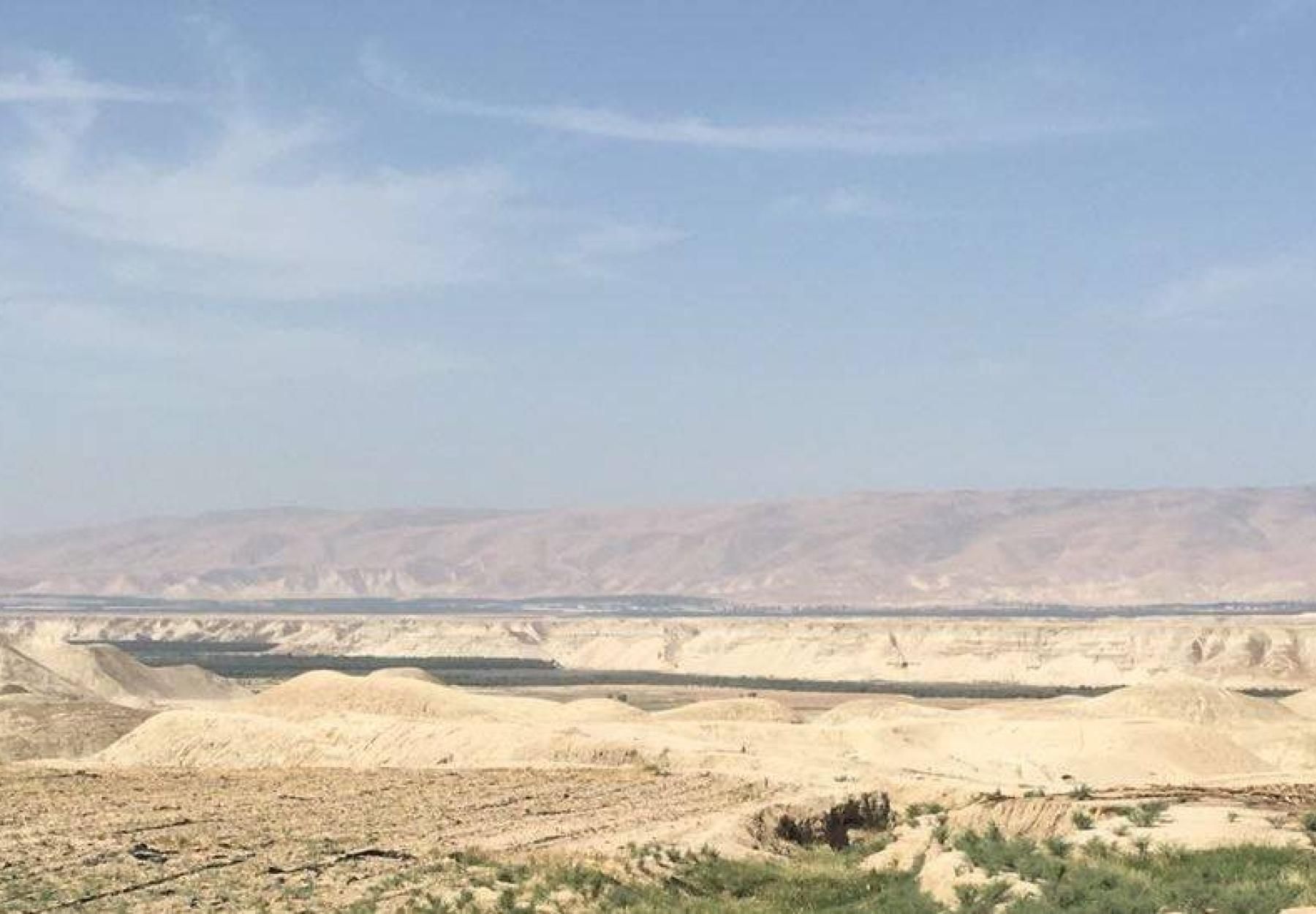
Arab Group for the Protection of Nature in partnership with the international Pesticide Action Network Asia Pacific organized a fact-finding mission in the Jordan Valley (Jordan) on 30th April, 2016, to learn about the risks and challenges faced by Jordanian farmers. The mission’s focus was on the village of Damia in the Deir Alla region, which suffers impacts of the Damia Landfill controlled by the Israeli occupation forces on the opposite side of the Jordan River.
APN received a number of calls from residents and farmers in Damia village who are impacted by the landfill, which has led to the emission of foul odors, spread of insects, increased respiratory problems, and damaged crops. Four months ago, occupation forces excavated the 20 year old landfill and spread its contents along a 5-6 kilometer stretch of the border, 1 km wide.The delegation met local farmer Jamal Mesalhah of Damia village, which is situated just 10 meters from the river. He expressed deep fears, pointing out that “the landfill is affecting our health in the short term, but we are more wary of the future impacts.” The waste may contain heavy metals such as lead or zinc, or radioactive materials that may travel with rainfall, adversely affecting nearby water sources, which is another concern of the health of future generations.APN met with farmers who reported that the Israeli occupation forces are aerial spraying toxic pesticides on the opposite side of the border, and that the wind moves this spray into Jordanian territory, destroying the land and agricultural products within vast areas. The delegation found that Israeli companies are exporting toxic and banned pesticides to Jordan.
APN also visited a farmer whose land was damaged by frequent fires started by Israeli occupation forces on the western bank of the river. The huge fires spread into the territory of Jordanian farmers and become difficult to control, causing huge losses to farmers because of crop damage and animal deaths.  The delegation proposed several recommendations, including the need to study the environmental situation of the Damia landfill and conduct analyses of soil and water; to pressure the Israeli forces to provide access to information on the contents of the existing waste; to pressure Israeli actors to remove the landfill from the border region due to its negative effects on public health, plants, and animal welfare; for the Jordanian government to call on the UN Special Rapporteur on Human Rights Implications of the Environmentally Sound Management and Disposal of Hazardous Substances and Wastes regarding the landfill; and, to communicate with agrochemical companies on their obligations under the Basel Convention and International Code of Conduct on the Distribution and Use of Pesticides to dispose of pesticide containers in an environmentally sound manner.
The delegation proposed several recommendations, including the need to study the environmental situation of the Damia landfill and conduct analyses of soil and water; to pressure the Israeli forces to provide access to information on the contents of the existing waste; to pressure Israeli actors to remove the landfill from the border region due to its negative effects on public health, plants, and animal welfare; for the Jordanian government to call on the UN Special Rapporteur on Human Rights Implications of the Environmentally Sound Management and Disposal of Hazardous Substances and Wastes regarding the landfill; and, to communicate with agrochemical companies on their obligations under the Basel Convention and International Code of Conduct on the Distribution and Use of Pesticides to dispose of pesticide containers in an environmentally sound manner. 